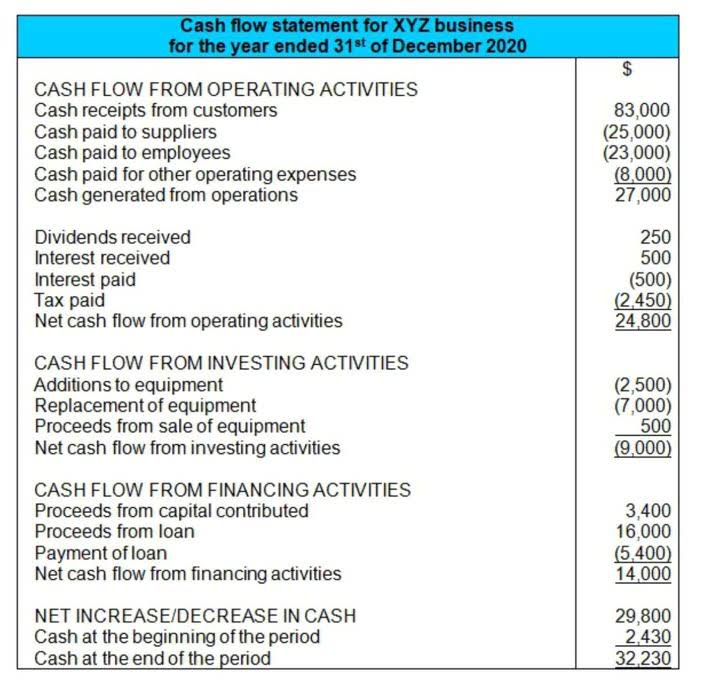
You’ll defer the remaining $50 to a later accounting period, typically at year-end or whichever period aligns with the subscription’s expiration date. Accrued expenses are payments or liabilities you record before processing the transactions. For example, if your business receives a utility bill in January for electricity used in December, you’d record that cost as an accrued expense in December. Let’s difference between accruals and deferrals say a customer makes an advance payment in January of $10,000 for products you’re manufacturing to be delivered in April.
- Debits and credits are used in a company’s bookkeeping in order for its books to balance.
- It is the sum of the amounts paid as customer deposits, retainers and other advance payments.
- Deferral journal entries are used to recognize prepaid expenses and unearned revenues.
- In accounting, “deferred” refers to items that have been received or paid but need to be recognized as revenue or expenses in future accounting periods.
- Understanding these methods is essential for stakeholders who rely on accurate financial information to make informed decisions.
- You’ll defer the remaining $50 to a later accounting period, typically at year-end or whichever period aligns with the subscription’s expiration date.
Is Deferred Revenue a Credit or Debit?
This would be recorded as a $10,000 debit to prepaid costs and a $10,000 credit to cash. This refers to revenue that are recorded in financial records once the transactions is carried out, regardless of whether cash has been received. For http://udigi.me/bookkeepers-charlotte-nc-bookkeeping-accounting/ instance, in a case where a service is offered to a client, but actual revenue is yet to be received, the revenue is transferred to a revenue accrued account.

Deferrals and Accruals in Accounting- Recommended Reading
- Shaun Conrad is a Certified Public Accountant and CPA exam expert with a passion for teaching.
- This method is particularly relevant for transactions where the revenue earned or the expenses incurred do not align with the current accounting period.
- You would recognize the revenue as earned in March and then record the payment in March to offset the entry.
- This is because, according to the double-entry concept, a transaction affects, at least, two accounts.
We would not use an accounts receivable account because nothing would be entered on the books until we received cash. You can see that the cash method would make it difficult to keep track of credit sales and amounts owed to the business if the cash basis is used. Deferred costs, also known as prepaid expenses, refer to expenses paid in advance but have yet to be consumed or utilized. These costs are initially recorded as assets on the balance sheet and are gradually recognized as expenses over time as they are consumed or used.

Expenses
Accrual accounting focuses on recognizing revenue and expenses when they are earned or incurred, regardless of cash movements. It provides a more accurate representation of a company’s financial performance and position by matching income gym bookkeeping and expenses with the period in which they occur. It is simpler to implement but may not provide an accurate reflection of a company’s financial performance.
- Accruals represent revenues earned or expenses incurred for which the cash has not yet been received or paid.
- By recording revenue and expenses as they occur, regardless of cash flow, you gain a more accurate picture of your business’s financial health.
- By using accrual accounting, businesses can provide a more accurate representation of their financial performance and position.
- Accrual accounting is essential for accurately recognizing revenue and expenses, so it’s crucial to be aware of the potential pitfalls.
- Accruals and deferrals have a significant impact on financial statement analysis.
Record Accrued Expense
- Suppose your company receives a utility bill for $1,000 in January for electricity you used in December.
- Now, the accounting department of Film Reel can’t allocate the $602 to sales revenue on its income statement.
- For the company, this means an expense was incurred in June and needs to be recorded in June.
- Prepaid expenses are the other type of deferral, occurring when a business pays cash for an expense that will benefit future accounting periods.
- Financial reporting stands as a critical tool for businesses, investors, and regulators to assess the economic health of an organization.
Deferral accounting, on the other hand, delays the recognition of revenue or expenses until cash is exchanged. Revenue is recorded when payment is received, and expenses are recorded when they’re paid, regardless of when the transaction actually occurred. Understanding the key differences between these methods and their impact on financial statements is crucial for effective financial planning and decision-making. By choosing the right method for your business, you can ensure accurate financial reporting and maintain a clear understanding of your company’s financial position. Accrual and deferral accounting can have different impacts on a company’s financial statements. Accrual accounting tends to provide a more accurate representation of a company’s financial position by matching revenues and expenses within the same period.

